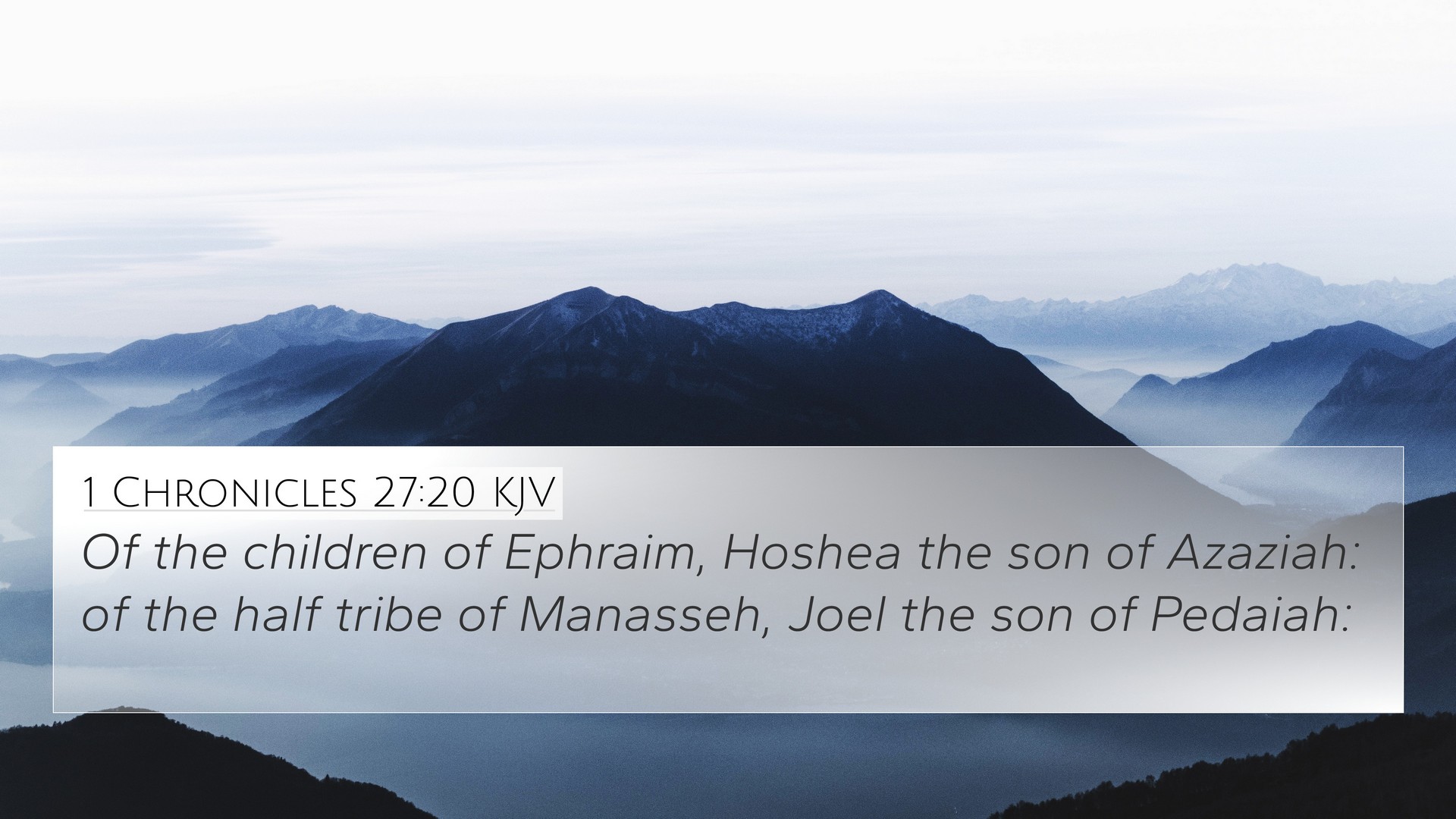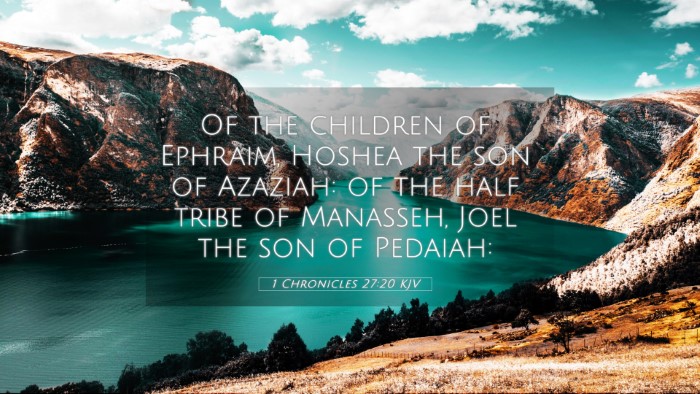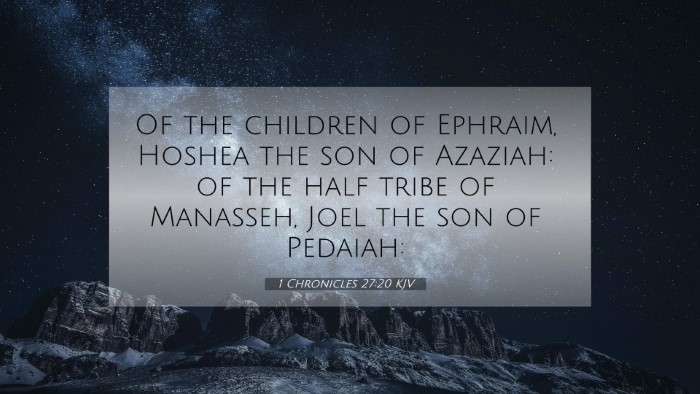Understanding 1 Chronicles 27:20
The verse 1 Chronicles 27:20 states:
"Of the children of Ephraim, Hoshea the son of Azaziah; and the half tribe of Manasseh, Joel the son of Pedaiah.”
Summary of the Verse: This verse is part of a broader account detailing the organization of King David's reign and the tribal leaders tasked with overseeing Israel’s military forces. It specifically mentions Hoshea's patriarchal lineage and highlights the half-tribe of Manasseh's representative, indicating the importance of these tribes in the structure of Israelite governance.
Commentary Insights
Let’s delve into the interpretations and insights offered by various public domain commentaries:
-
Matthew Henry:
Henry discusses David’s appointment of military leaders in this chapter, illustrating the symmetry and order in King David’s administration. He highlights Hoshea's lineage as significant because it reinforces the presence of Ephraim and Manasseh in the governance of Israel, emphasizing David’s strategic choice of leaders based on their ancestral heritage.
-
Albert Barnes:
Barnes points out the importance of Hoshea, noting the implications of his leadership over the tribe of Ephraim. He emphasizes that David’s organization shows a structured approach to leadership within the kingdom, and the mention of both tribes showcases the ongoing division and connection within the nation of Israel's identities.
-
Adam Clarke:
Clarke elaborates on the historical context of the tribes of Ephraim and Manasseh, noting their significance as key players in Israel’s history. He also indicates that the lineage of leaders contributed to the dynamics of loyalty and influence within David’s rule, pointing towards a reflective understanding of God’s promise to these tribes.
Bible Verse Cross-References
This verse connects thematically and historically with several other scriptures:
- Joshua 14:4 - Discusses the division of land among the tribes of Israel, providing background on the tribes’ identities.
- 1 Chronicles 5:23 - Highlights the half-tribe of Manasseh and its significance in the military context.
- Genesis 48:5 - Relates to the blessing of Joseph's sons, Ephraim and Manasseh, and their inheritance rights.
- Numbers 1:32-35 - Gives a listing of the tribes' leaders, relating them to their responsibilities and roles.
- 2 Samuel 2:9 - Focuses on the territories given to the tribes and implications on leadership and rule in Israel.
- 1 Chronicles 12:1-2 - Discusses those who aided David, connecting to the military themes in 27:20.
- Romans 11:1-2 - Highlights God's faithfulness to His chosen people, drawing a parallel to the leadership roles found in Israel.
Thematic Connections
Linking Bible Scriptures: The mention of specific tribal leaders helps create a framework for understanding how God organized and positioned His people throughout history. The verses listed above reflect various interactions that depict the covenant relationship between God and the tribes of Israel.
Tools for Bible Cross-Referencing
For further study, here are some tools and methods for cross-referencing Bible verses effectively:
- Bible Concordance: A valuable tool for finding passages related to particular themes or keywords.
- Bible Cross-reference Guide: Helps identify connections across different scriptures.
- Cross-reference Bible Study: A method for deepening understanding through comparative analysis.
- How to Use Bible Cross-references: Steps to locate and interpret related verses.
- Bible Reference Resources: Compilations of scripture links for enhanced study.
Conclusion
1 Chronicles 27:20 serves as a reminder of the structured leadership God established among His people. Through the cross-references and commentaries, we gain insight into the historical and theological significance of this verse. Understanding connections between such verses deepens our interpretation of biblical texts and enriches our scriptural knowledge.
By exploring the inter-Biblical dialogue presented in this and related verses, we gain a more profound understanding of God’s promises, the roles of His chosen people, and the overarching narrative of the Bible.


